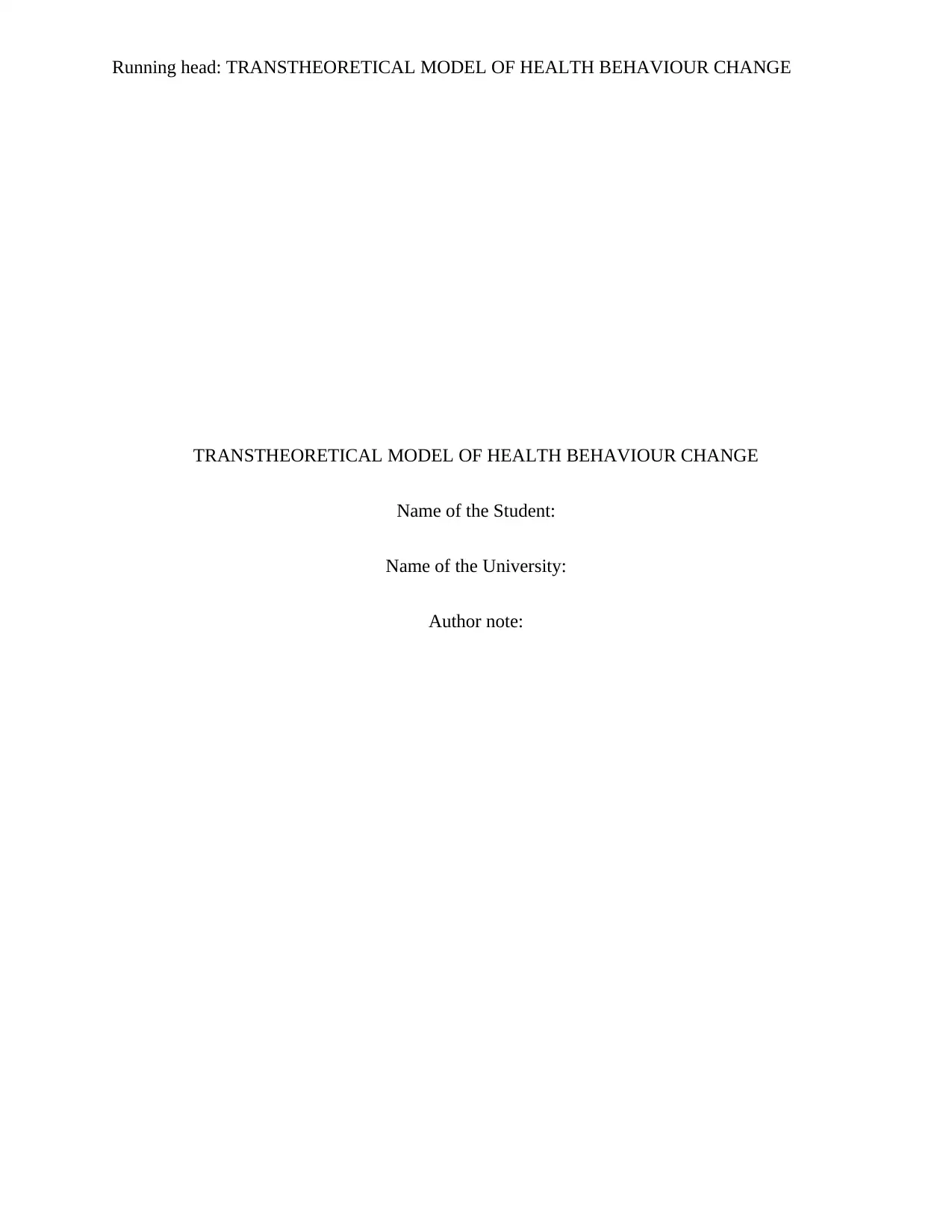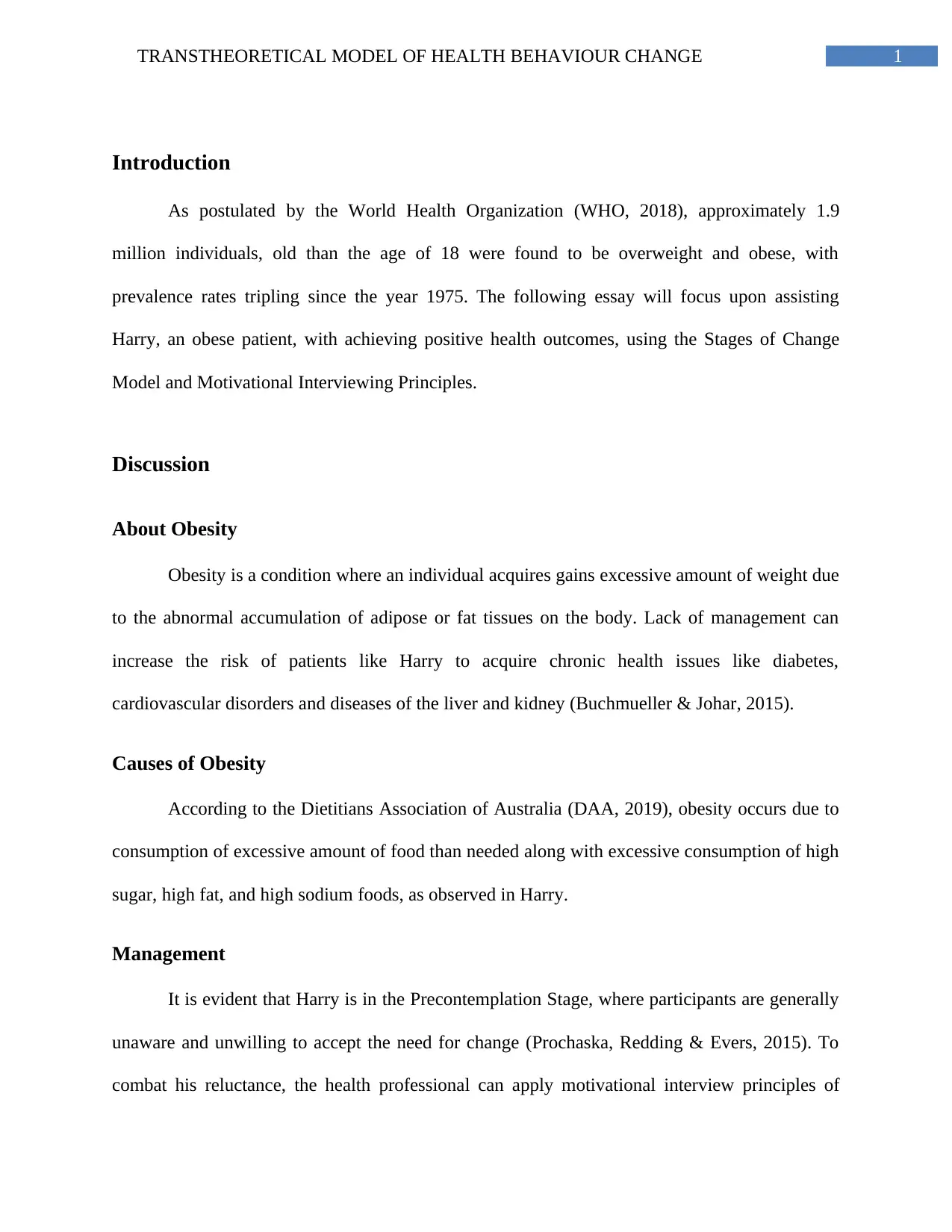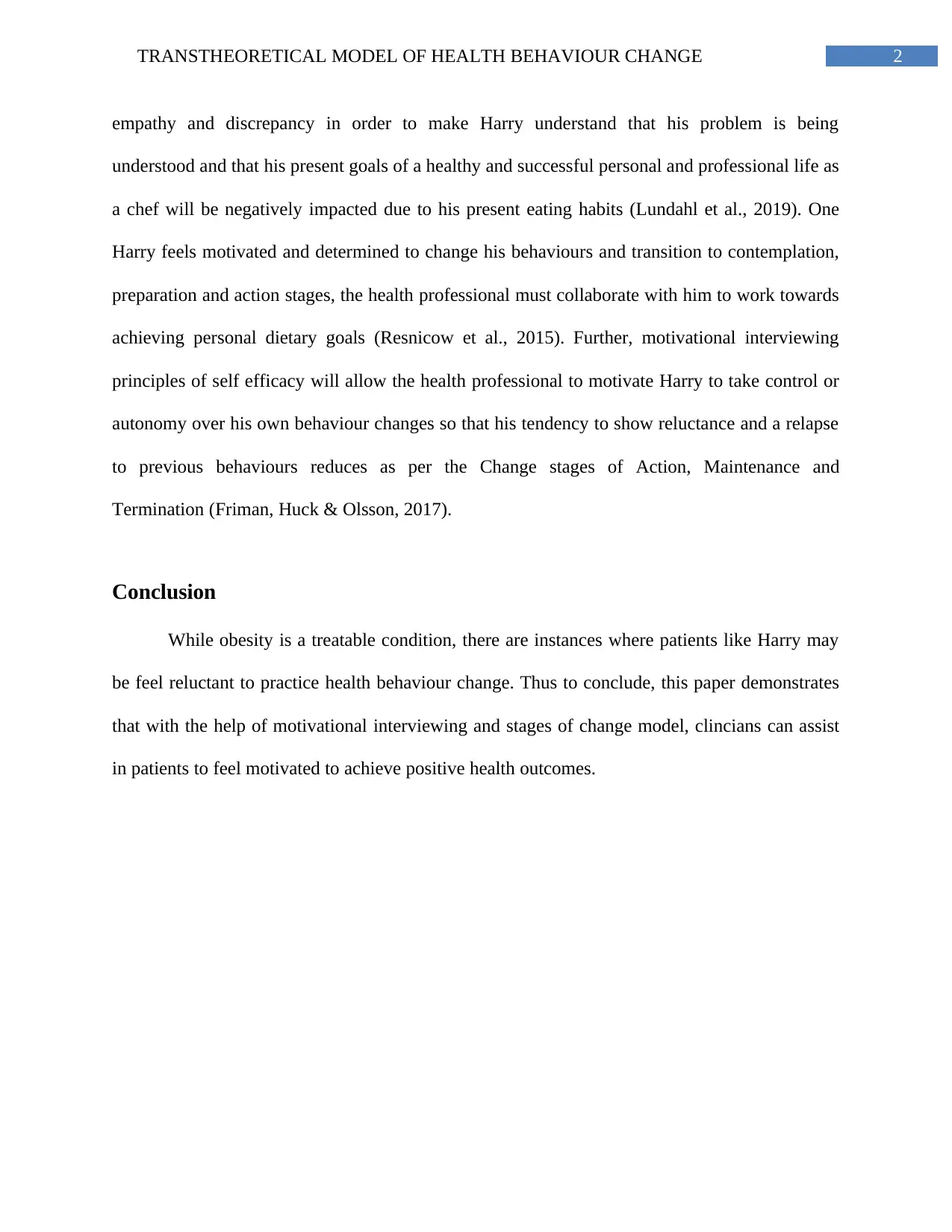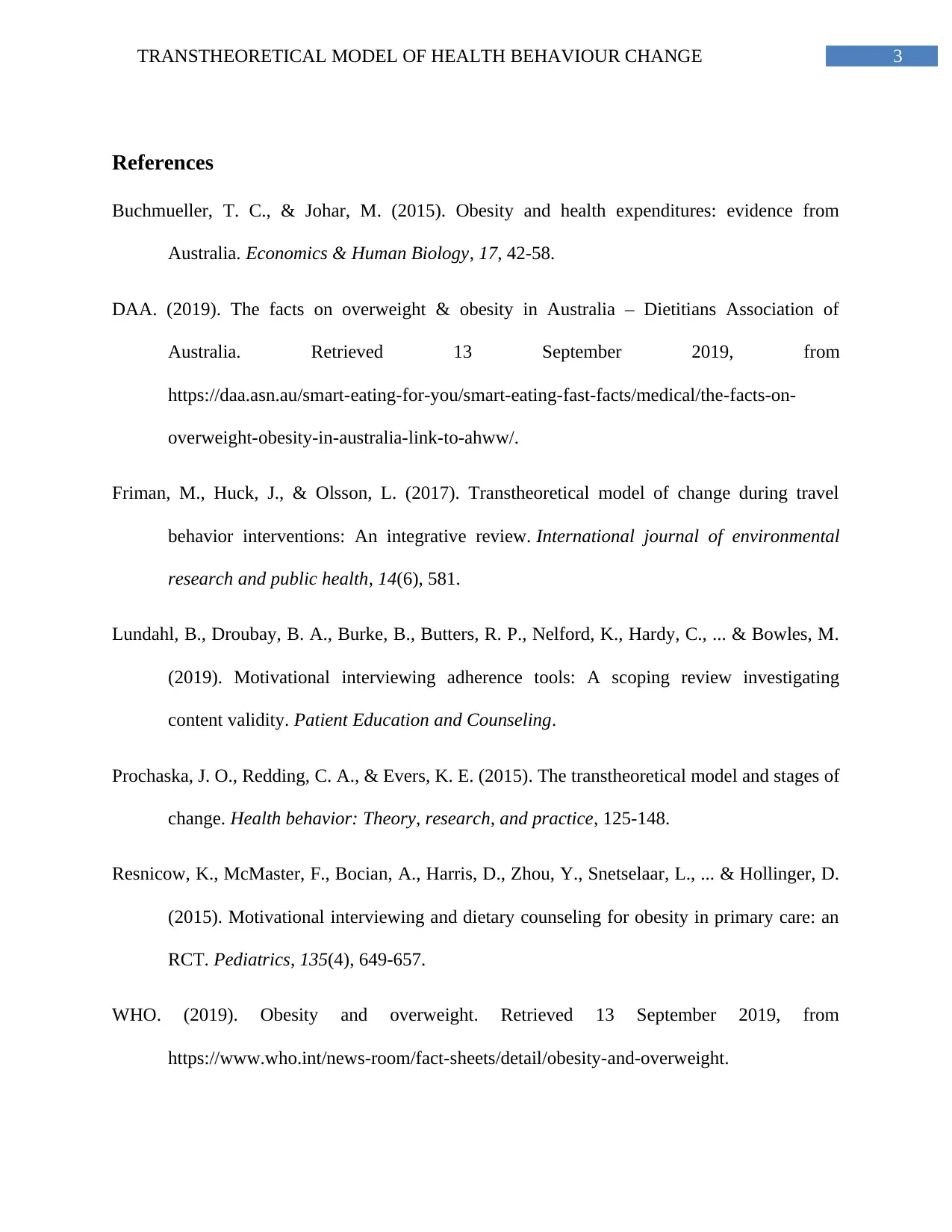Applying the Transtheoretical Model to Obesity Management Essay
VerifiedAdded on 2022/11/10
|4
|757
|288
Essay
AI Summary
This essay explores the application of the Transtheoretical Model of Health Behavior Change to manage obesity in an individual named Harry. It begins by defining obesity and its causes, referencing statistics from the World Health Organization and the Dietitians Association of Australia. The essay then focuses on Harry, an obese patient, and identifies that he is in the Precontemplation Stage. The essay then explains how motivational interviewing principles, such as empathy and discrepancy, can be used to encourage Harry to recognize the need for change. The essay also discusses the importance of self-efficacy in motivating Harry through the stages of contemplation, preparation, action, maintenance, and termination. The conclusion emphasizes the effectiveness of combining motivational interviewing with the Stages of Change Model in helping patients achieve positive health outcomes. References from sources such as Prochaska, Redding & Evers, and Resnicow et al. are included to support the arguments and methodologies discussed.
1 out of 4











![[object Object]](/_next/static/media/star-bottom.7253800d.svg)